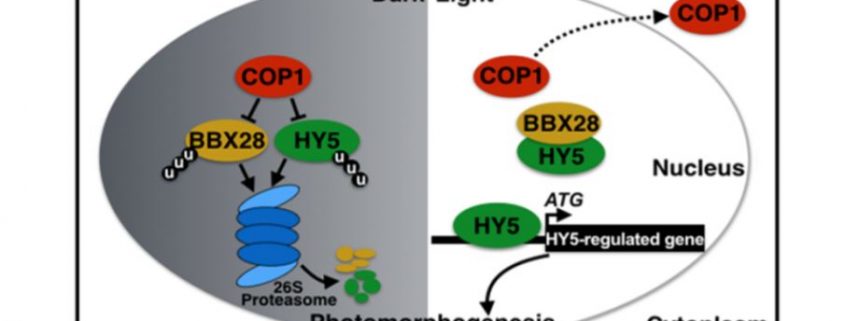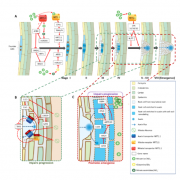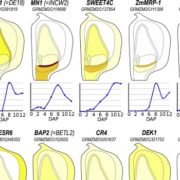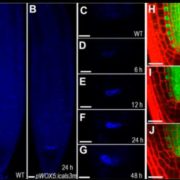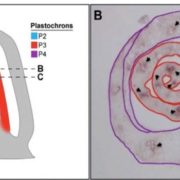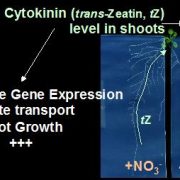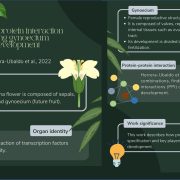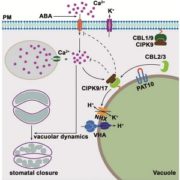BBX28 Negatively Regulates Photomorphogenesis
Lin et al. show that B-BOX DOMAIN PROTEIN28 plays a role in regulating plant development in response to light signals. Plant Cell https://doi.org/10.1105/tpc.18.00226.
By Dongqing Xu and Xing Wang Deng
Background: Sunlight is one of the key environmental cues influencing plant growth and development. In darkness, Arabidopsis seedlings undergo skotomorphogenesis, exhibiting elongated hypocotyls, closed cotyledons, and apical hooks. In the light, seedlings develop short hypocotyls and expanded cotyledons, a process termed photomorphogenesis. These two distinct developmental processes and their transitions are critical steps required for a germinated seed to become a healthy seedling.
Question: We aim to identify and characterize previously unidentified components of light signaling and their molecular roles underlying light-mediated seedling development.
Findings: We characterized a negative regulator of light signaling, B-BOX PROTEIN28 (BBX28), in Arabidopsis. BBX28 undergoes 26S proteasome-mediated degradation in a COP1 (CONSTITUTIVE PHOTOMORPHOGENIC1)-dependent manner in etiolated seedlings. In the light, BBX28 forms an inactive heterodimer with the transcription factor HY5, thereby interfering with the binding of HY5 to its target DNA cis-elements and inhibiting its transcriptional activity towards its target genes. Consequently, these molecular events help repress photomorphogenesis in Arabidopsis.
Next steps: We are currently identifying and characterizing other yet unidentified regulators of light signaling, as well as their molecular roles in regulating photomorphogenesis.
Lin F., Jiang Y., Li J., Yan T., Fan L., Liang J., Chen ZJ., Xu D., Deng XW. (2018). B-box containing protein 28 negatively regulates photomorphogenesis by repressing the activity of Transcription Factor HY5 and undergoes COP1-mediated degradation. Plant Cell 30: 2006–2019.


